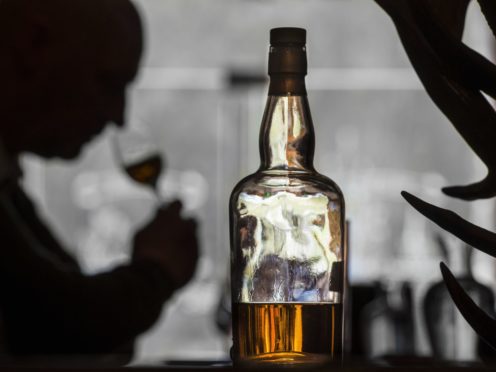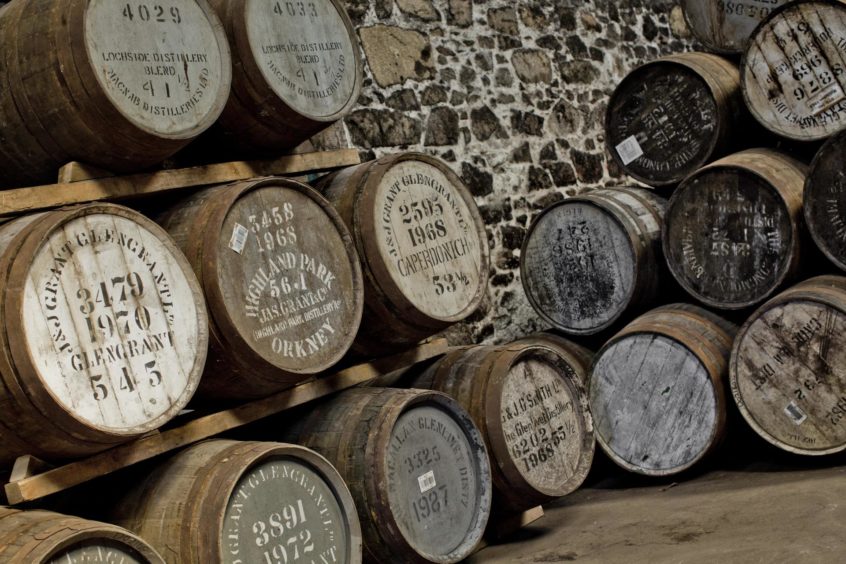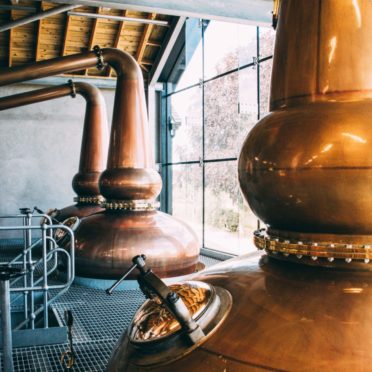It’s a phenomenon known as the Angels’ Share, which sees around two percent of Scotland’s national drink evaporate into thin air every year.
Whisky producers have long tried to stem the impact of maturation loss, but now the Scottish Greens have raised concerns over its impact on the environment.
The porous oak barrels which store the amber nectar are responsible for the reduction in volume of distilled drink for every year it is stored.
It is possible for an 18-year-old whisky cask to lose up to half of its original content from when it is filled.
It happens as a result of ethanol evaporating and escaping between gaps made by the wood as it expands and contracts.
Scotch experts and the Scottish Government insist there are no detrimental impacts to the environment as a result of the “Angels taking their share”, because of the speed at which it disperses.
No data
But Scottish Green MSP Ross Greer challenged the Scottish Government on its lack of data surrounding maturation loss, following concerns raised to him by an industrial chemist.
He added: “I was recently contacted by a constituent with a background in industrial chemistry.
“He has been working with a number of distilleries on issues such as maturation loss and was interested in the Scottish Government’s position on the issue.
“There’s a real lack of data in this area and little clarity from government on what is expected, so I was happy to lodge some questions with ministers and clear things up.
“I hope the responses so far have proven useful to those across the whisky industry who are working hard to reduce emissions and protect the reputation of Scotland’s national drink.”
Industry supports climate targets
The whisky industry is worth more than £5.5 billion to the Scottish economy, the Scotch Whisky Association point out, with producers working with the Scottish Environmental Protection Agency (SEPA) to minimise the loss of maturation evaporation as well as other environmental impacts.
A spokesperson for the Scotch Whisky Association said: “Some loss of spirit from casks during maturation is a natural part of the whisky making process.
“Losses of ethanol average around 2% per year and, as the Scottish Government points out, is neither harmful to health nor impactful on the environment due to its rapid dispersal.
“While spirit evaporation is an important contributor to the final character of the whisky, the Scotch Whisky industry continues to invest in research as well as work with SEPA and other regulators to improve efficiency and minimise the amount that evaporates from the cask.
“The Scotch Whisky sector is committed to a sustainable future and driving down our environmental footprint across all key impact areas.
“For example, our sector strategy supports the Scottish Government’s 2045 net zero target.
“The industry works hard to reduce emissions across the board, including a 32% reduction in greenhouse gases since 2009.
“The sector has pledged to hit net zero emissions in our own operations by 2040 as part of an ambitious new sustainability strategy released earlier this year.”
Written question
During parliamentary recess, Mr Greer wrote to the Scottish Government regarding his concerns.
He asked the government what date it plans on regulating emissions from maturation loss in a written question, as well as what mitigations would be put in place to reduce potential harm.
Responding, Minister for Environment, Biodiversity and Land Reform Mairi McAllan said: “The main release to air from Scotch whisky maturation is the fugitive emission of ethanol, which disperses very quickly in the atmosphere and is not considered to be harmful to human health through this exposure route.
“While emissions from maturation of Scotch whisky are not subject to regulation under the Pollution Prevention and Control (Scotland) Regulations 2012, SEPA works with regulated business through sector plans to help drive improvement and reduce emissions across environmental media.”




